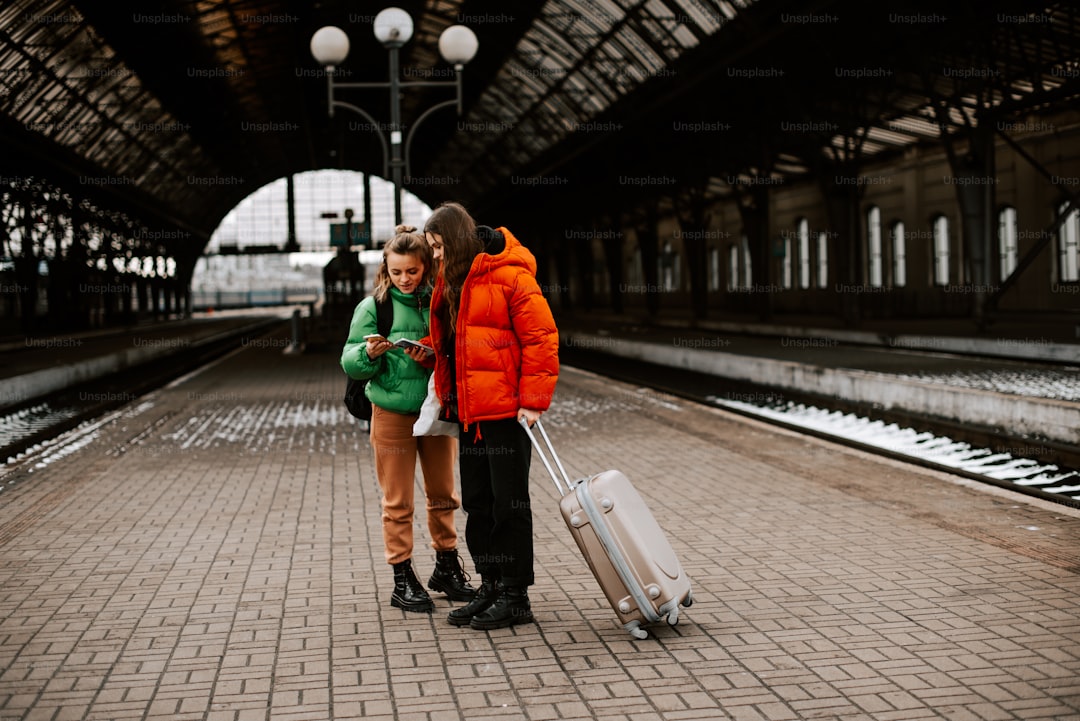Top Digital Nomad Hotspots for Work and Play

Introduction
The rise of remote work has turned the world into a giant office where coffee shops, beachside cafés and mountain lodges replace the traditional cubicle. For those who can trade a fixed desk for a passport stamp, the challenge is no longer “how do I work remotely?” but rather “where should I set up my temporary base?” This guide highlights the most vibrant digital nomad hotspots that blend reliable internet, affordable living and a rich social scene. Each destination is examined through the lens of work‑friendly infrastructure, lifestyle perks and practical considerations such as visas and safety.
How we chose the hotspots
To keep the list focused we applied a set of criteria that matter to location independent professionals.
- Internet reliability – average speed above 15 Mbps and stable connections in coworking spaces and cafés.
- Cost of living – monthly expenses that allow a comfortable lifestyle without breaking the bank.
- Community – presence of other nomads, regular meet‑ups and networking events.
- Quality of life – access to outdoor activities, cultural experiences and a healthy work‑life balance.
- Visa flexibility – options for stays ranging from one month to a year without excessive bureaucracy.
Only places that scored well across these dimensions made the final cut.
Lisbon, Portugal
Work environment
Lisbon’s tech scene has exploded in the past decade. The city hosts dozens of coworking spaces such as Second Home, Heden and Cowork Central. These venues provide high‑speed fiber, ergonomic furniture and community events that range from pitch nights to language exchanges. Most cafés in neighborhoods like Alfama and Bairro Alto also offer free Wi‑Fi and a relaxed atmosphere.
Cost of living
A modest lifestyle can be sustained on roughly €1,300–€1,600 per month. Rent for a one‑bedroom apartment in the city centre averages €800, while a shared flat or a studio in the outskirts drops to €500–€600. Groceries, public transport and dining out are all reasonably priced compared with other Western European capitals.
Lifestyle and play
Lisbon’s hills provide stunning viewpoints, while the nearby Sintra palace and Cascais beaches offer weekend getaways. The city’s nightlife is legendary – from rooftop bars with sunset views to fado houses that showcase Portugal’s musical heritage. For the active nomad, surfing at Carcavelos or paddleboarding on the Tagus River are just a short ride away.
Visa and practicalities
Citizens of most countries can stay visa‑free for up to 90 days. Portugal also offers a D7 passive income visa that allows stays of one year and can be renewed, ideal for freelancers with a stable remote income. The public transport system is efficient, with trams, metros and buses covering the entire metropolitan area.
Bali – Ubud and Canggu, Indonesia
Work environment
Bali’s reputation as a creative haven is well earned. Ubud hosts tranquil coworking spaces such as Hubud and Outpost, set amidst rice paddies and jungle pathways. Canggu caters to a more surf‑oriented crowd with venues like Dojo Bali and Outpost Canggu that blend high‑speed internet with a vibrant community. Both towns provide plenty of cafés with reliable Wi‑Fi, power outlets and a laid‑back vibe.
Cost of living
Monthly expenses can be kept under $1,200 for a comfortable lifestyle. A private villa with a pool in Ubud starts at $600 per month, while a shared house in Canggu is around $350–$450. Local food is inexpensive; a meal at a warung costs $2–$4, and cooking at home with fresh produce from markets keeps costs low.
Lifestyle and play
Ubud is a cultural hub, offering yoga studios, art galleries and traditional Balinese ceremonies. Hiking to the Tegallalang Rice Terraces or the Mount Batur sunrise trek provides spectacular outdoor experiences. Canggu’s surf breaks, beachfront cafés and sunset parties make it a social hotspot. The island’s spiritual atmosphere and emphasis on wellness attract many seeking a balanced work‑play routine.
Visa and practicalities
Indonesia provides a Visa on Arrival for many nationalities, granting a 30‑day stay that can be extended once for a total of 60 days. For longer stays, the Social‑Cultural Visa allows up to six months with the possibility of renewal. Health care is basic in rural areas but urban centres such as Denpasar have reputable hospitals.
Medellín, Colombia
Work environment
Once known solely for its turbulent past, Medellín has reinvented itself as a tech‑friendly city. The El Poblado district houses coworking spaces like WeWork, Selina and Atom House, all equipped with fast internet and a collaborative atmosphere. Cafés in Laureles and Envigado also cater to remote workers, offering comfortable seating and power outlets.
Cost of living
A digital nomad can comfortably live on $1,300–$1,600 per month. A one‑bedroom apartment in El Poblado averages $700, while a shared flat in Laureles drops to $400–$500. Public transportation is cheap, with the Metro and Ciclovía bike lanes providing easy navigation.
Lifestyle and play
Medellín’s “eternal spring” climate makes outdoor activities pleasant year‑round. The city’s Parque Arví, cable‑car rides and nearby Guatapé rock formation provide day‑trip adventures. The vibrant nightlife in Parque Lleras, salsa clubs and street food markets add cultural flavor. For fitness enthusiasts, hiking in the Aburrá Valley or cycling on the Ciclovía on Sundays are popular options.
Visa and practicalities
Citizens of most countries can enter Colombia visa‑free for up to 90 days, with a possible extension for another 90 days. The M visa (for freelancers) can be obtained for stays up to three years, requiring proof of income and a local address. The city’s public safety has improved dramatically, though it is advisable to stay aware of neighborhoods after dark.
Chiang Mai, Thailand
Work environment
Chiang Mai has become a magnet for freelancers seeking a low‑cost, high‑quality environment. Coworking spaces such as Punspace, Mana Coworking and Camp provide reliable internet, ergonomic furniture and community events ranging from coding meet‑ups to meditation sessions. The city’s cafés, especially in the Nimman area, offer quiet corners for focused work.
Cost of living
Living costs are among the lowest on this list. A private studio in the city centre can be rented for $300–$450 per month, while a shared house costs $150–$250. Street food meals are typically under $2, and a meal at a mid‑range restaurant costs $5–$10. Monthly expenses for a comfortable lifestyle range from $800 to $1,100.
Lifestyle and play
Chiang Mai’s cultural heritage shines through its ancient temples, night markets and annual Yi Peng Lantern Festival. Outdoor enthusiasts can explore the surrounding mountains, waterfalls and the Doi Suthep national park. The city also offers a thriving wellness scene with yoga studios, Thai massage and meditation retreats.
Visa and practicalities
Thailand offers a Tourist Visa that can be extended for an additional 30 days, allowing a stay of up to 60 days. The Smart Visa for digital nomads, launched in 2023, permits stays of up to one year for qualified remote workers earning a minimum income threshold. The city’s public transport includes songthaews, tuk‑tuks and a modest bus network.
Budapest, Hungary
Work environment
Budapest’s central European location and burgeoning startup ecosystem make it a compelling base. Coworking spaces such as Kaptár, Mosaik and Loffice provide high‑speed internet, modern amenities and regular networking events. The city’s cafés along the Danube and in districts like Józsefváros are equipped with power outlets and a relaxed vibe.
Cost of living
A comfortable lifestyle can be maintained on €1,400–€1,800 per month. A one‑bedroom apartment in the city centre averages €950, while a shared flat in a peripheral district costs €500–€600. Public transportation is efficient, with metro, tram and bus lines covering the entire metropolitan area.
Lifestyle and play
Budapest’s thermal baths, such as Széchenyi and Gellért, offer relaxation after a day of work. The historic Buda Castle, ruin bars in the Jewish Quarter, and the vibrant food scene provide cultural enrichment. For nature lovers, the Buda Hills offer hiking and biking trails with panoramic city views.
Visa and practicalities
Citizens of many countries can stay visa‑free for up to 90 days. Hungary also offers a Digital Nomad Visa that allows stays of up to one year for remote workers meeting a minimum income requirement. The city’s public transport system uses a unified ticketing system, making commuting straightforward.
Mexico City, Mexico
Work environment
Mexico City blends modern infrastructure with rich cultural heritage. Coworking spaces such as WeWork, Homework, and The Pool deliver fast internet, meeting rooms and community events. Neighborhoods like Roma, Condesa and Polanco host cafés with reliable Wi‑Fi and a creative atmosphere.
Cost of living
Monthly expenses for a comfortable lifestyle range from $1,200 to $1,600. A one‑bedroom apartment in Condesa averages $900, while a shared loft in Roma costs $500–$700. Street tacos are famously affordable, with a typical serving costing $1–$2.
Lifestyle and play
The city’s museums, including the Museo Frida Kahlo and National Museum of Anthropology, provide endless cultural experiences. Parks such as Chapultepec offer green space for jogging, picnics and boat rides. The vibrant nightlife, ranging from cantinas to contemporary music venues, ensures a lively social scene after work.
Visa and practicalities
Many nationalities can enter Mexico visa‑free for up to 180 days. The Temporary Resident Visa allows stays of up to four years for those who can demonstrate sufficient income. Mexico City’s extensive metro and bus network makes commuting efficient, though traffic can be heavy during peak hours.
Tallinn, Estonia
Work environment
Tallinn is at the forefront of e‑government and digital innovation. The city hosts coworking spaces such as Lift99, Spring Hub and CoWork Tallinn, each offering ultra‑fast fiber, modern design and regular tech meet‑ups. Cafés in the historic Old Town provide a picturesque backdrop for focused work.
Cost of living
Living costs are moderate compared with other Nordic capitals. A one‑bedroom apartment in the city centre averages €900, while a shared flat costs €500–€600. Monthly expenses for a comfortable lifestyle range from €1,300 to €1,600.
Lifestyle and play
Tallinn’s medieval Old Town is a UNESCO World Heritage site, perfect for weekend strolls and cultural immersion. The city’s coastline offers sandy beaches within a short bus ride, and the surrounding forests provide hiking and berry‑picking opportunities. A thriving food scene, from traditional Estonian cuisine to modern fusion, adds to the city’s appeal.
Visa and practicalities
Estonia participates in the EU Digital Nomad Visa program, allowing remote workers to stay for up to a year if they meet an income threshold. The country also offers a e‑Residency program, enabling entrepreneurs to establish and manage an EU‑based company online. Public transport includes trams, buses and a reliable ticketing system.
Cape Town, South Africa
Work environment
Cape Town’s scenic backdrop and growing tech community make it a desirable destination. Coworking spaces such as Workshop17, Cape Town Office and The Barn provide high‑speed internet, meeting rooms and networking events. The city’s cafés in Sea Point and Kalk Bay are known for their relaxed atmosphere and ocean views.
Cost of living
A comfortable lifestyle can be achieved on $1,500–$2,000 per month. A one‑bedroom apartment in the city centre averages $1,200, while a shared flat in the suburbs costs $600–$800. Local markets and street food keep food expenses low, with a typical meal costing $5–$10.
Lifestyle and play
The iconic Table Mountain offers hiking trails, cable‑car rides and panoramic views of the city. Beaches such as Clifton and Llandudno provide opportunities for surfing, sunbathing and sunset picnics. The city’s wine regions, art galleries and vibrant nightlife ensure a balanced work‑play dynamic.
Visa and practicalities
South Africa grants a 90‑day tourist visa to many nationalities, extendable for an additional 90 days. The Remote Work Visa pilot program, launched in 2022, allows stays of up to one year for qualified remote workers. Public transport includes a reliable MyCiTi bus system and a limited rail network.
Sofia, Bulgaria
Work environment
Sofia is emerging as an affordable hub for tech talent. Coworking spaces such as Betahaus, Puzl and Co‑Work provide fast internet, modern office furniture and community events. Cafés in the Vitosha district and near Studentski Grad cater to remote workers with ample power outlets.
Cost of living
Monthly expenses are among the lowest in Europe. A one‑bedroom apartment in the city centre averages €500, while a shared flat costs €250–€350. Food costs are modest; a meal at a local restaurant is around €8–€12. A comfortable lifestyle can be maintained on €1,100–€1,400 per month.
Lifestyle and play
Sofia’s proximity to the Vitosha Mountain offers skiing, snowboarding and hiking within a short commute. The city’s historic sites, such as Alexander Nevsky Cathedral and the Roman Rotunda of St. George, provide cultural depth. A lively bar scene, craft breweries and music festivals keep evenings engaging.
Visa and practicalities
Bulgaria offers a 90‑day visa‑free stay for many nationalities. The Long‑Term Stay Visa for digital nomads allows up to one year of residence for those meeting an income requirement. Public transport includes a modern metro system, buses and trams.
Playa del Carmen, Mexico
Work environment
Located on the Riviera Maya, Playa del Carmen blends beach life with a growing remote‑work community. Coworking spaces such as Bunker, The Lab and Selina Co‑Work deliver high‑speed internet, ergonomic setups and networking events. Many beachfront cafés provide Wi‑Fi and a relaxed vibe for those who prefer to work with a view of the Caribbean.
Cost of living
Monthly expenses for a comfortable lifestyle range from $1,200 to $1,500. A one‑bedroom apartment near the beach costs $800–$1,000, while a shared house a few blocks inland is $400–$600. Local eateries serve tacos, ceviche and fresh fruit for $2–$5 per dish.
Lifestyle and play
The turquoise waters invite snorkeling, scuba diving and paddleboarding. Day trips to the ancient Mayan ruins of Tulum or the Cenotes provide cultural and natural exploration. The town’s vibrant nightlife, beach parties and yoga studios create a balanced routine of work and recreation.
Visa and practicalities
Mexico’s tourist visa allows stays up to 180 days. The Temporary Resident Visa can be obtained for remote workers who meet an income threshold, granting a stay of up to four years. Public transport includes colectivos, buses and a well‑connected ferry system to nearby islands.
Lisbon, Portugal (Second Look – the Sub‑Cities)
Work environment in the suburbs
While the city centre offers a bustling coworking scene, the surrounding towns of Cascais, Sintra and Ericeira provide quieter alternatives with reliable internet. Coworking hubs such as Cowork Lisboa in Cascais and Surf Office in Ericeira cater to digital nomads who prefer a coastal lifestyle.
Cost of living
Rent in Cascais for a one‑bedroom apartment averages €850, slightly lower than central Lisbon. Shared housing in Sintra can be found for €400–€500. Overall monthly expenses drop by about €150–€200 compared with staying in the heart of the city.
Lifestyle and play
Cascais offers a sophisticated marina, golf courses and a charming old town. Ericeira is a world‑renowned surf destination with consistent waves for all skill levels. Sintra’s palaces and forested hills provide a fairy‑tale backdrop for weekend adventures.
Visa and practicalities
Visa rules remain the same as for Lisbon proper. The D7 visa and the Golden Visa programs provide pathways for longer stays for those who meet financial criteria.
Summary of Key Takeaways
- Internet matters most – all featured hotspots have multiple coworking spaces and cafés with speeds above 15 Mbps.
- Cost of living varies – Southeast Asian destinations like Bali and Chiang Mai are the most affordable, while European capitals such as Lisbon and Tallinn are moderate.
- Community is a catalyst – cities with active meet‑ups, language exchanges and networking events help reduce isolation and foster collaboration.
- Visa flexibility can make or break a stay – research each country’s remote‑work visa options before booking a flight.
- Work‑play balance is personal – choose a destination whose outdoor activities, cultural scene or nightlife align with your personal interests.
By weighing these factors against your own work style, budget and adventure preferences, you can select a hotspot that fuels both productivity and enjoyment. The world is full of places where a laptop can be set up under a palm tree, beside a mountain trail or in a historic café. The next step is to pack your bags, secure a reliable internet connection, and start exploring the endless possibilities that digital nomad life offers.
Random Posts

Spain Digital Nomad Visa Guide for Remote Workers
Discover how to live and work in Spain with the new Digital Nomad Visa. This guide covers eligibility, application steps, lifestyle perks, and tips to settle smoothly as a remote professional
3 weeks ago

Freelance Success Tips for Remote Workers on the Move
Learn how to thrive as a traveling freelancer: pick the right projects, manage money across borders, stay healthy on the road, and build a supportive nomad network with practical, mobile first habits.
1 month ago

Nomadic Minimalism and Green Travel Building a Sustainable Community
Discover how stripping down to essentials and traveling responsibly can unite digital nomads into low impact, resource sharing communities that protect the planet and enrich local cultures.
1 month ago

The Complete Nomad Starter Kit Checklist and Planning Guide
Ready to hit the road? This guide gives you a step-by-step checklist and planning roadmap for a nomadic life, covering mindset, gear, documents, finances, so you launch confidently and never miss a detail.
1 month ago

The Ultimate Resource List for Digital Nomads on the Move
Discover the essential apps, books, podcasts and services every digital nomad needs to stay productive on the move, organized by purpose for quick access wherever you work, travel or live.
2 months ago
Latest Posts

Essential Software Every Remote Professional Should Use
Master remote work with essential tools: instant messaging like Slack, high definition video calls such as Zoom, and asynchronous voice apps. Streamline communication, stay connected and boost productivity.
1 day ago

Mastering Remote Work Productivity for Digital Nomads and Freelancers
Learn proven habits, tools, and tactics that help digital nomads and freelancers stay focused, deliver quality work, and maintain a sustainable lifestyle while traveling the world.
1 day ago

Tech‑Friendly European Towns Perfect for Remote Living
Discover Europe’s best small towns where fast internet, affordable living and vibrant tech communities let you work remotely while soaking up historic charm, lakeside views or mountain air.
1 day ago